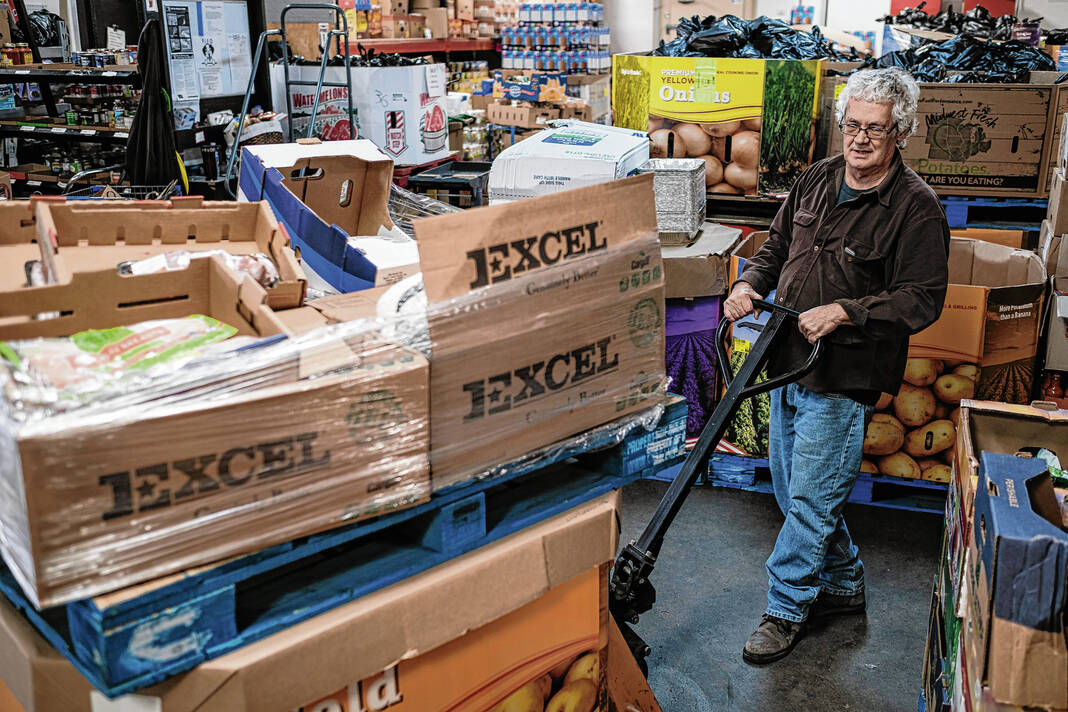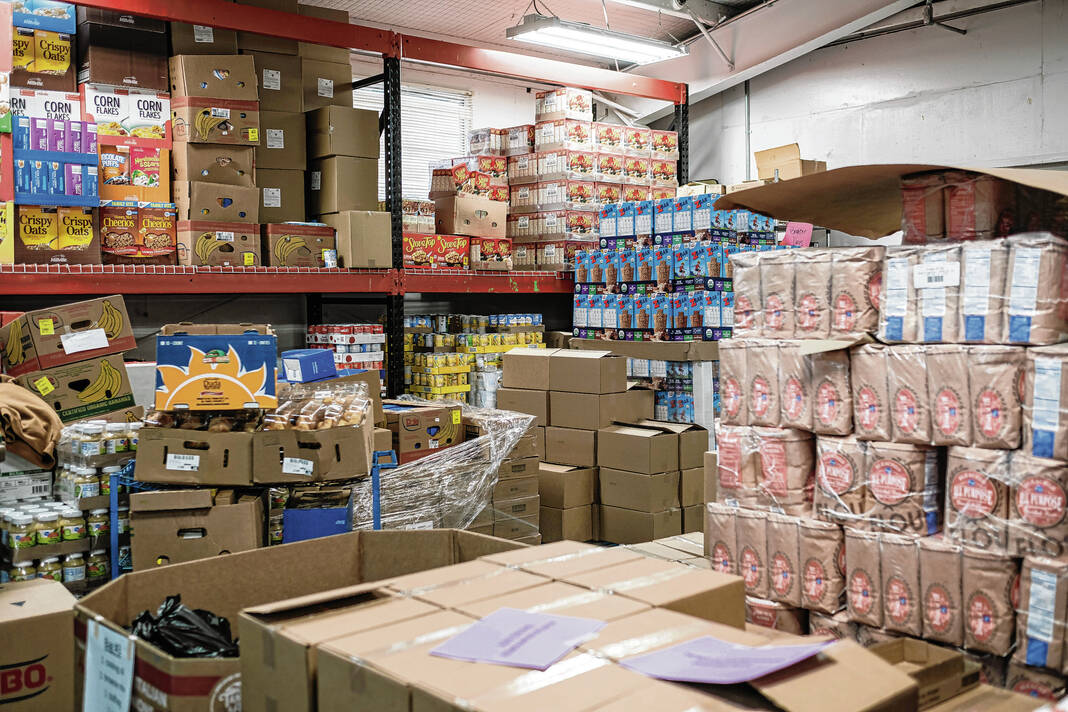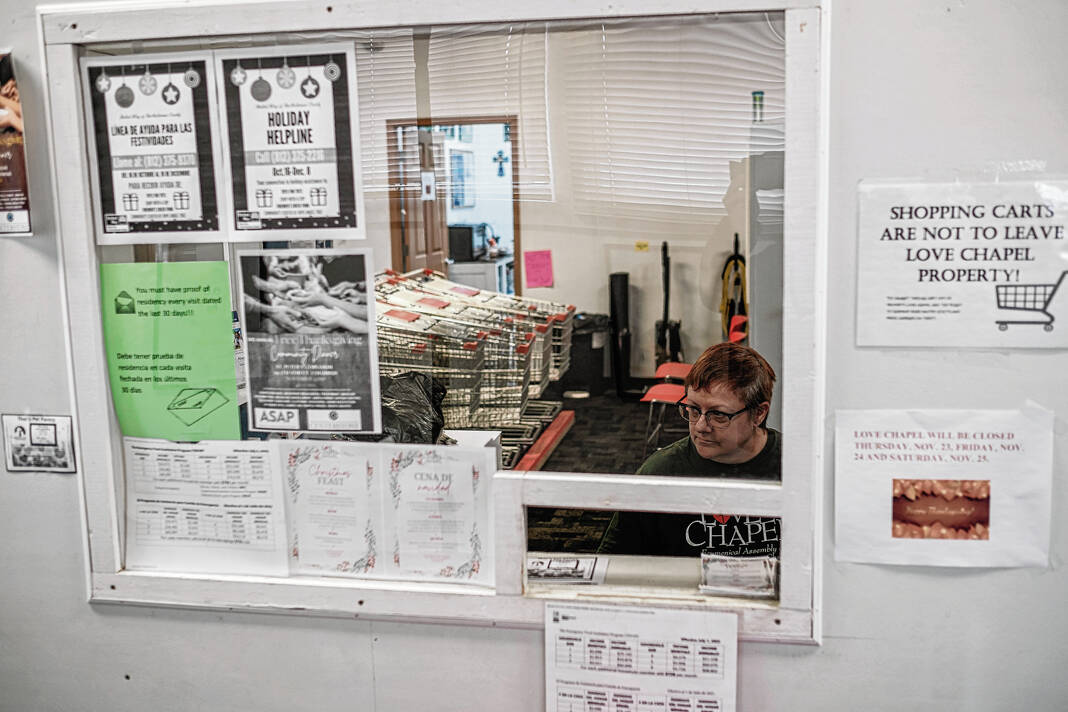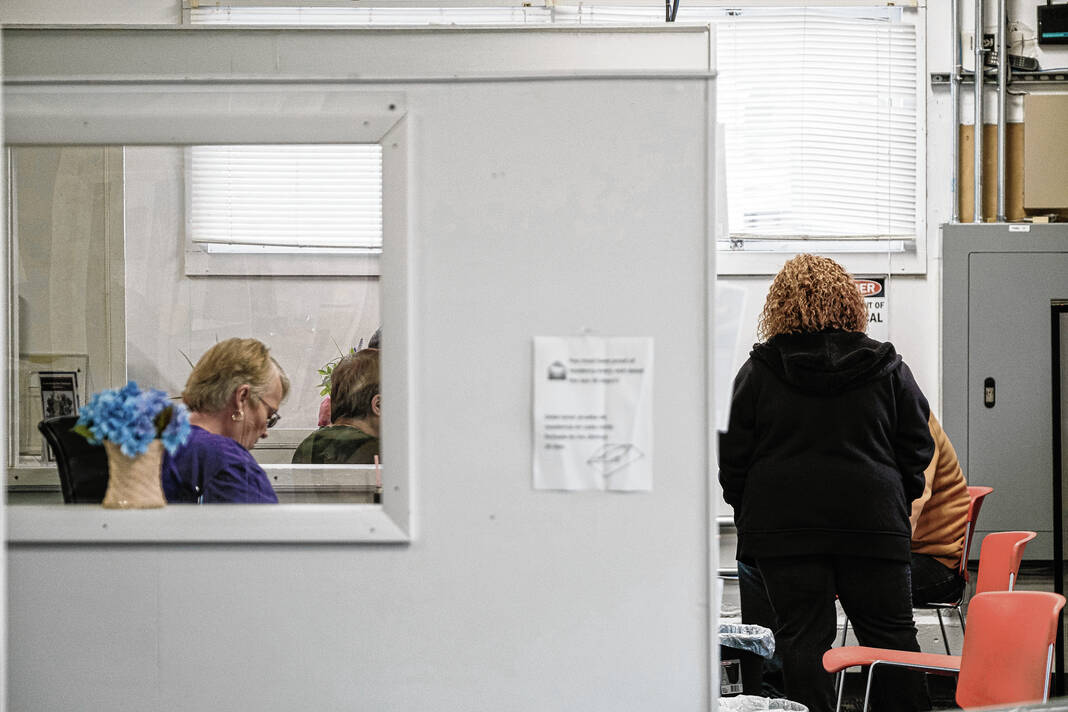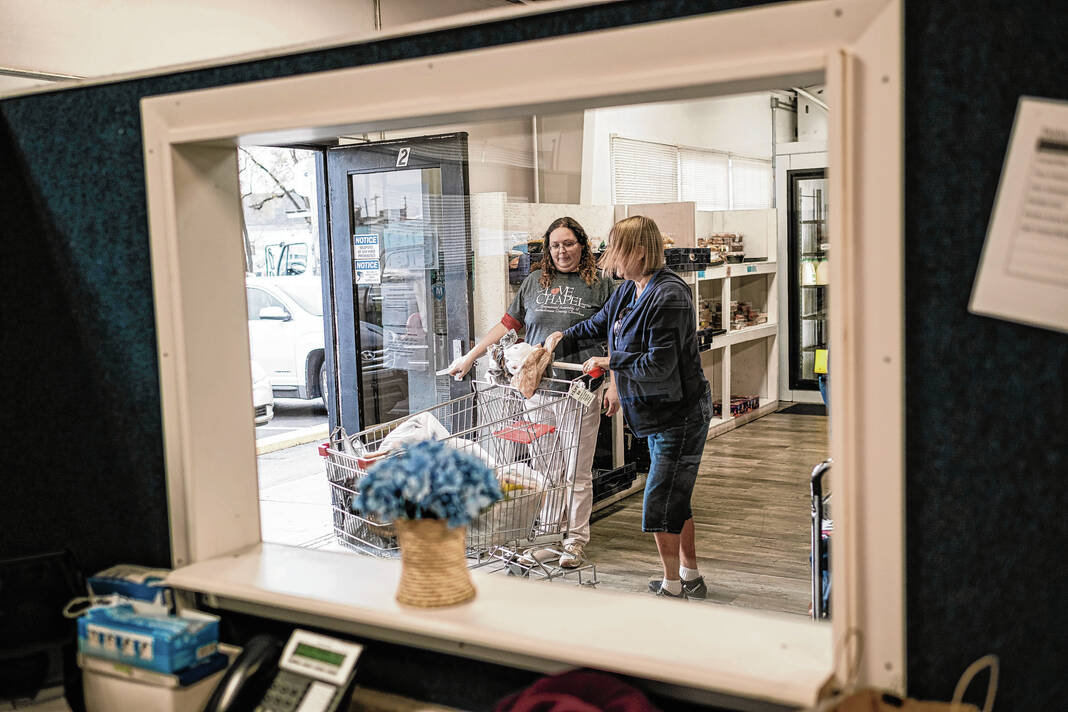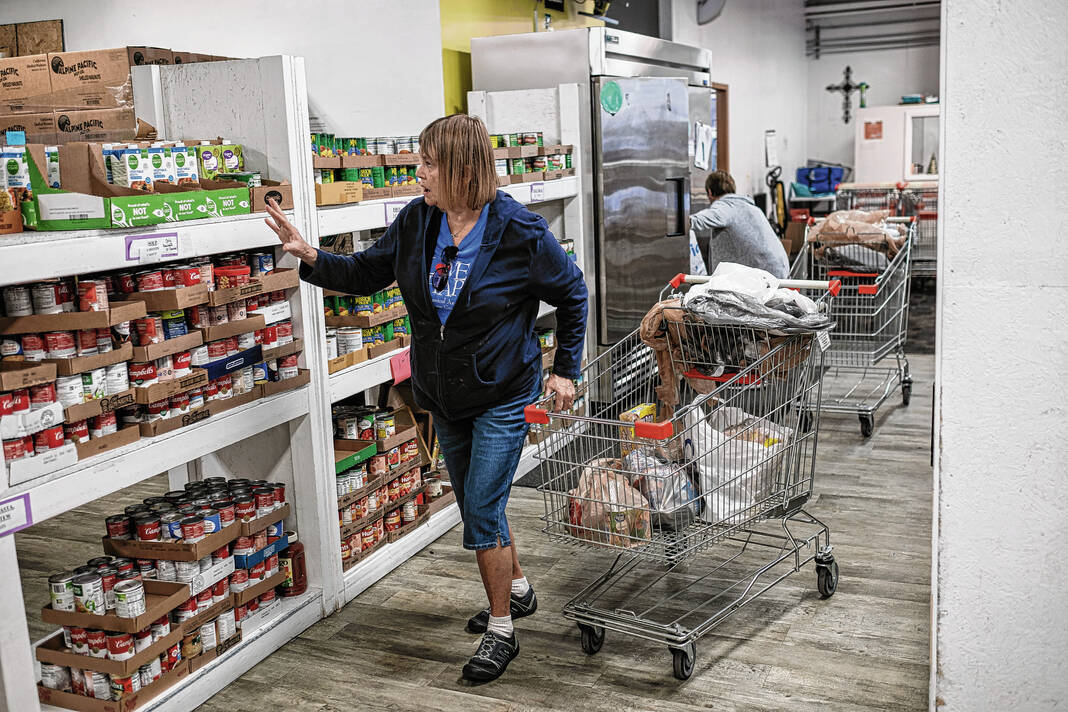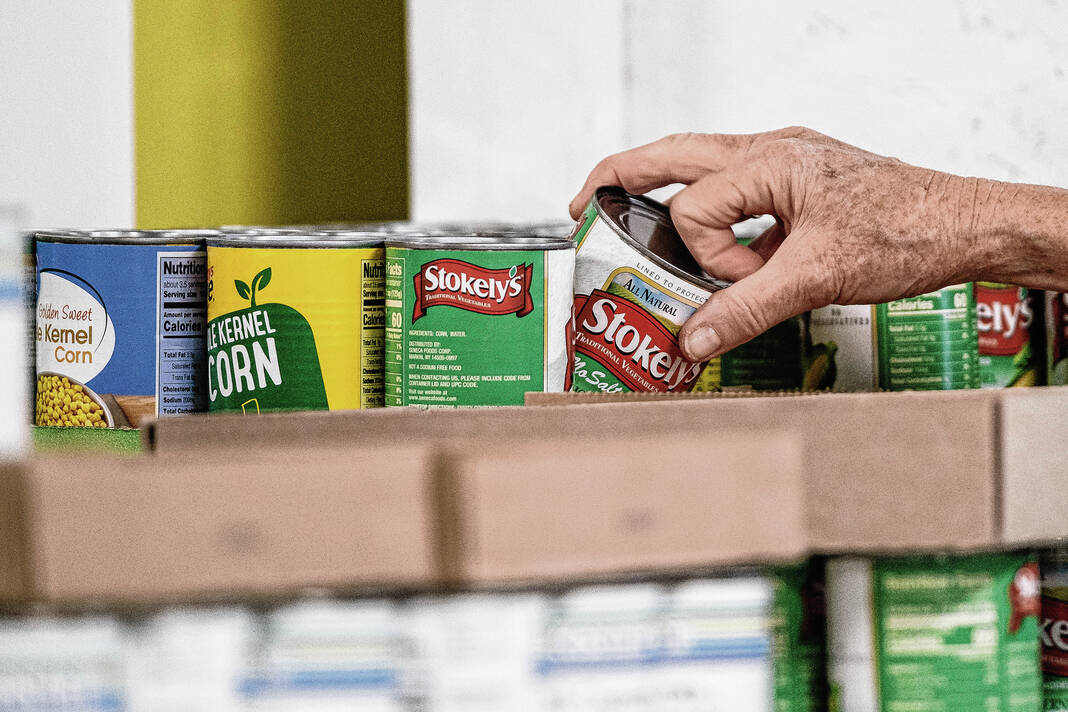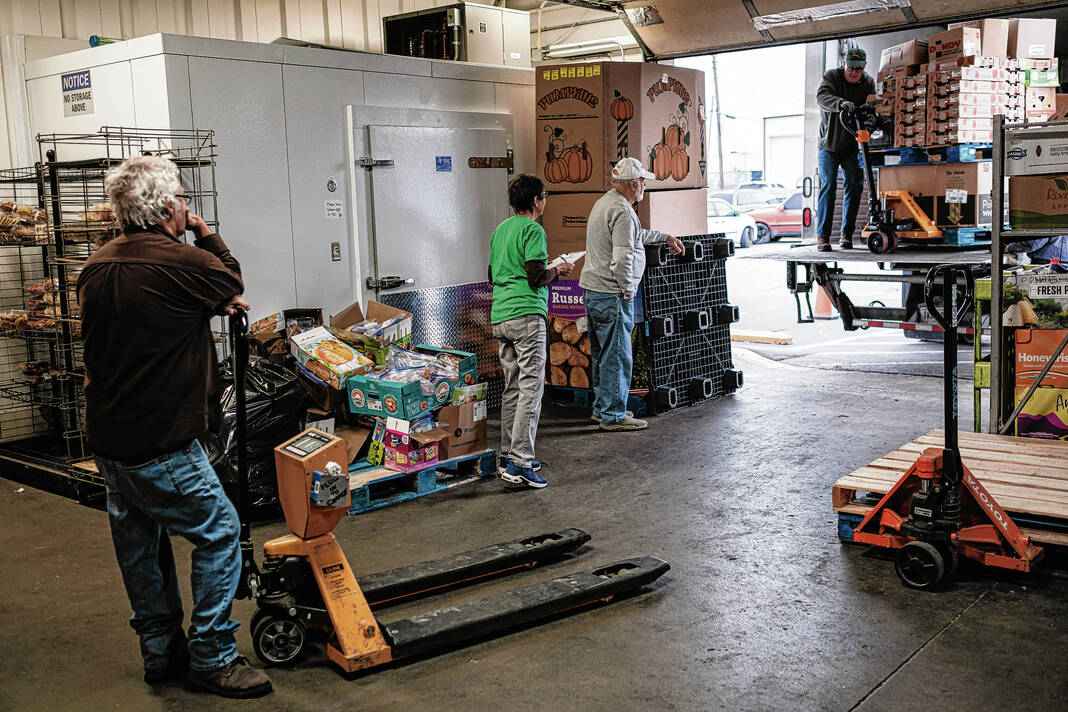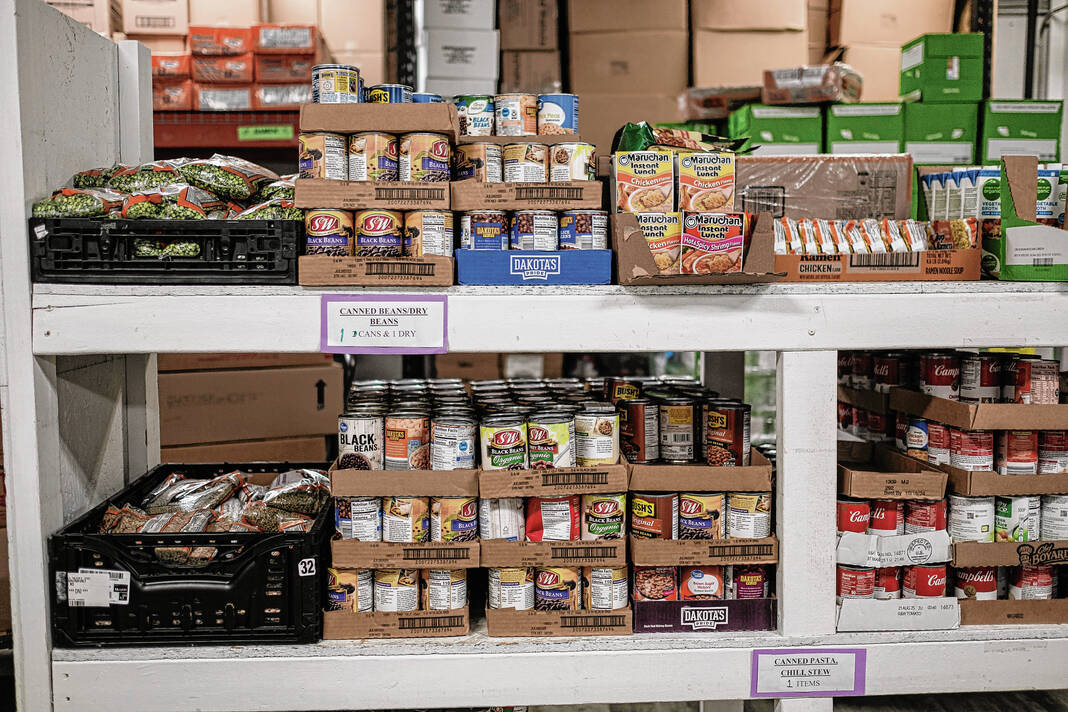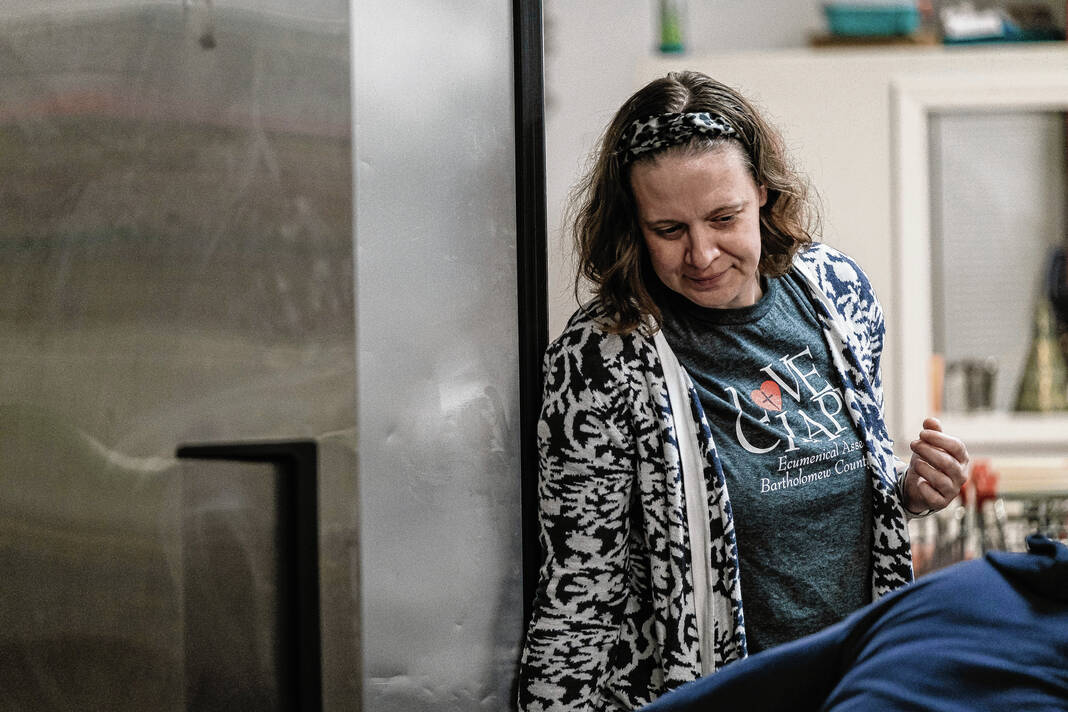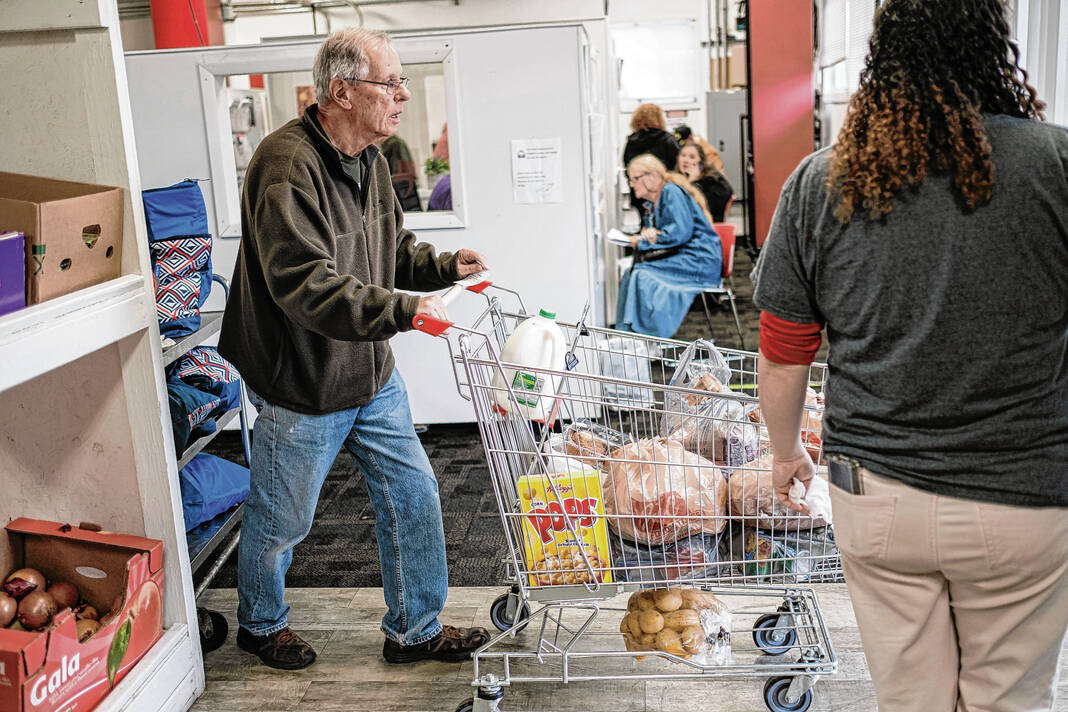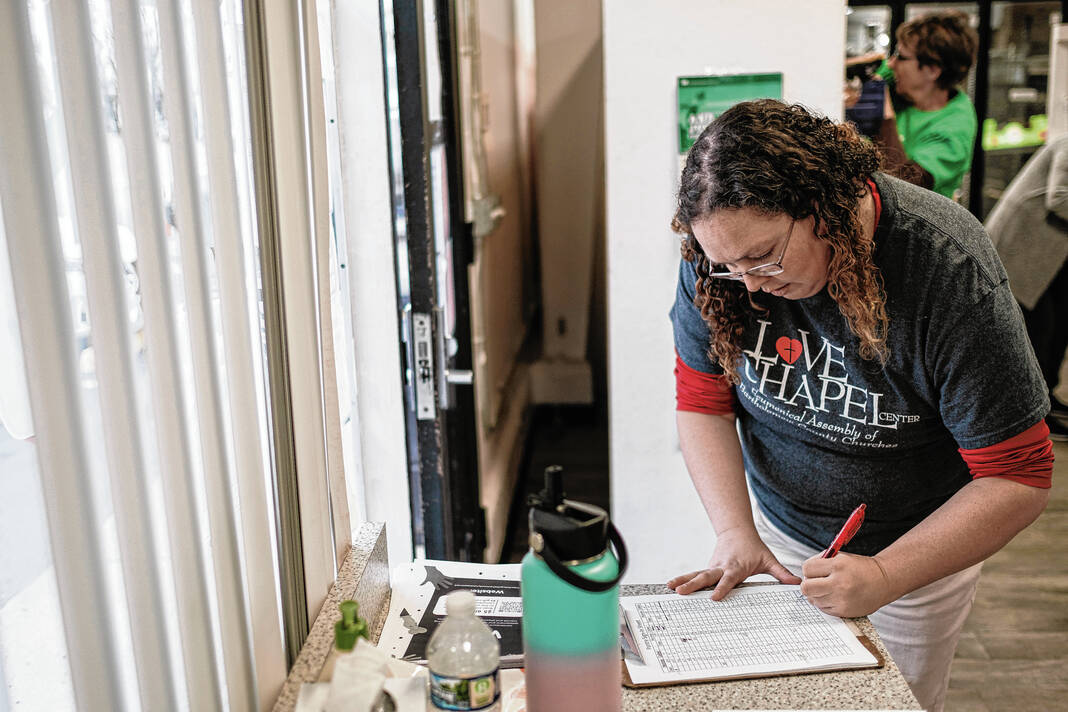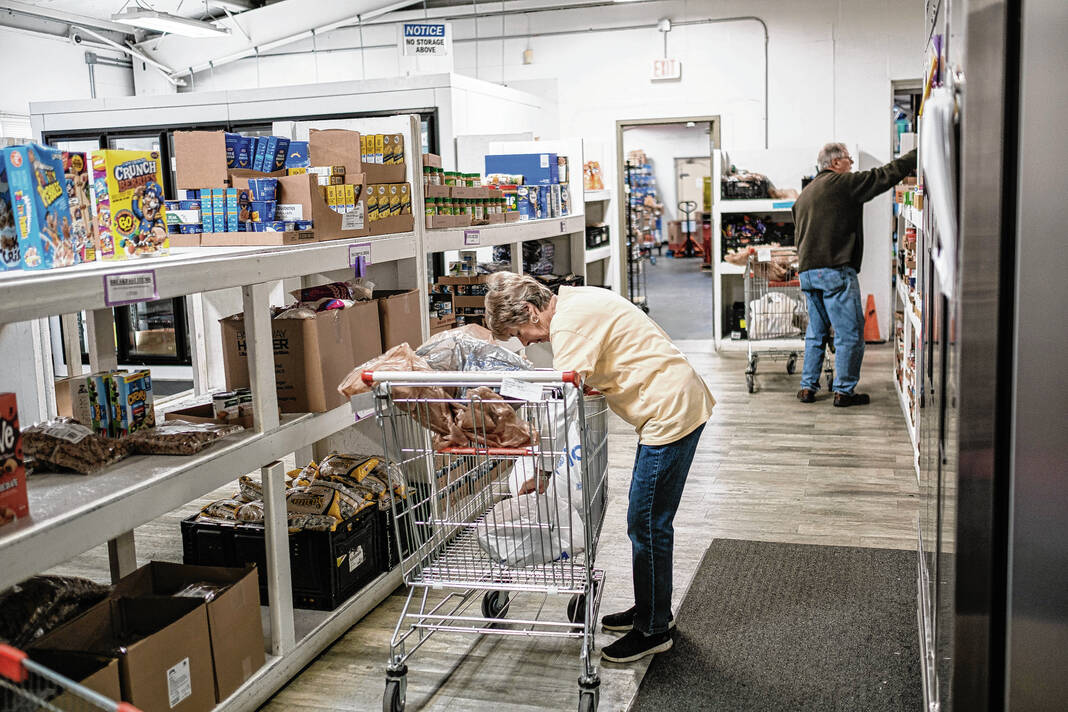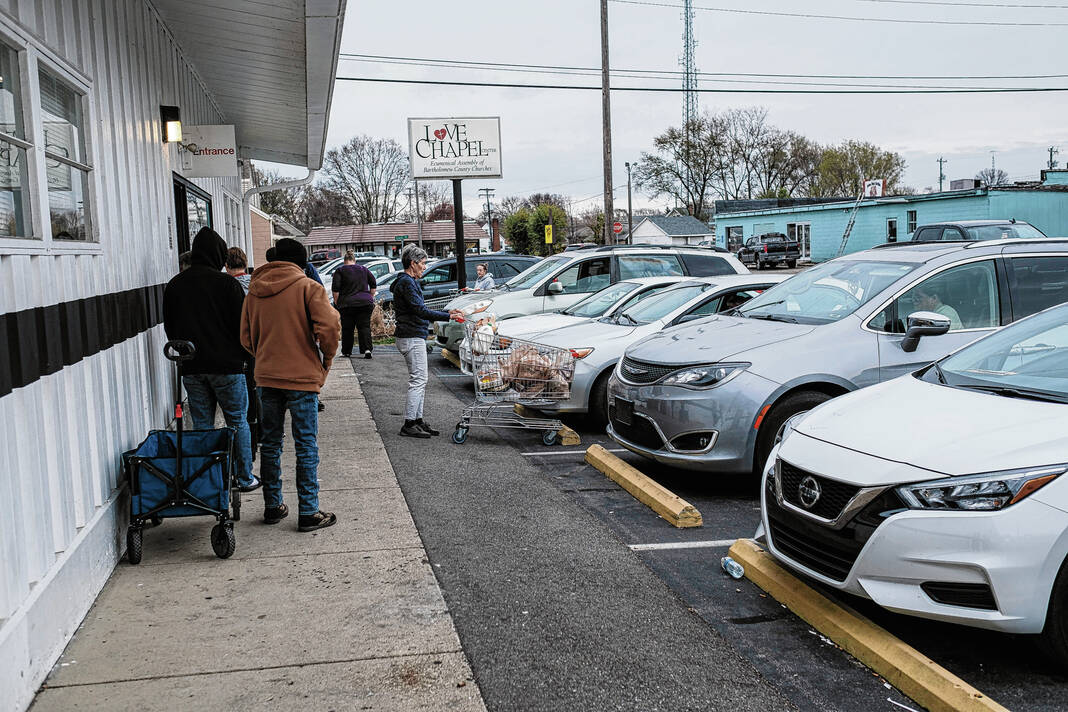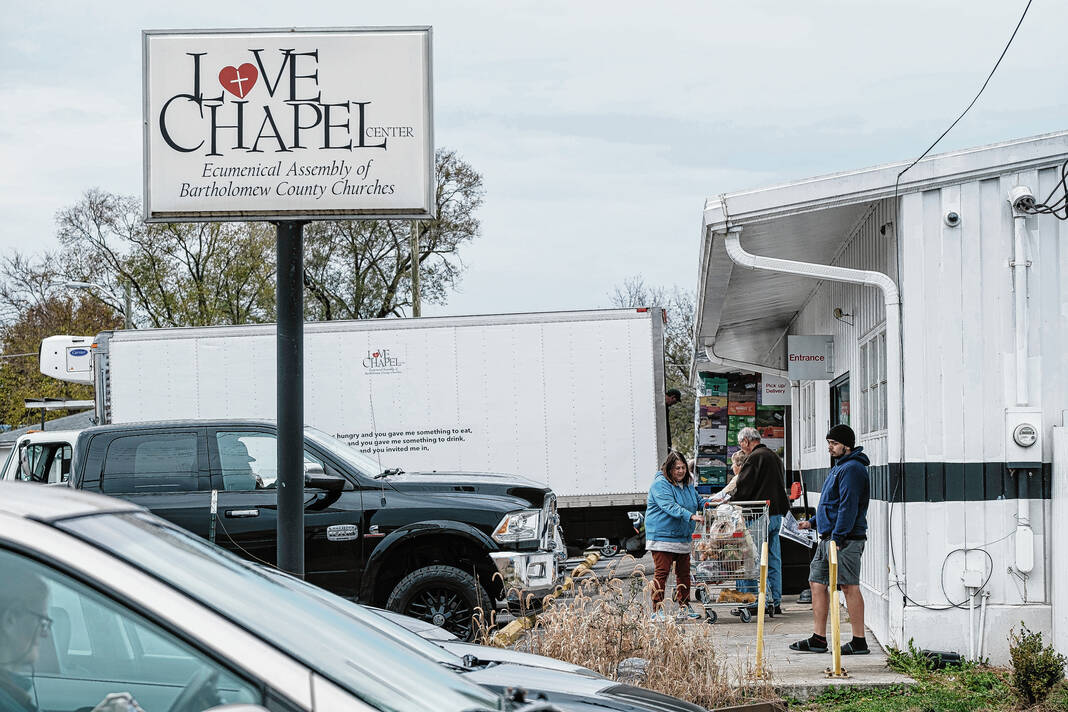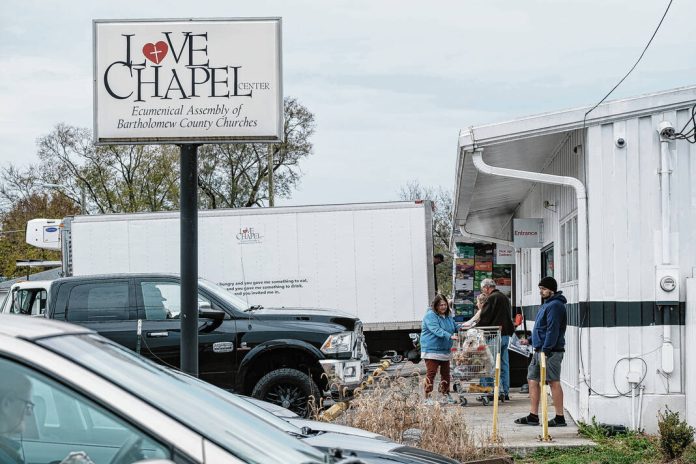
Mike Wolanin | The Republic People gather outside the Love Chapel food pantry in Columbus, Ind., Monday, Nov. 20, 2023.
Local food pantries have seen record demand for help with groceries in the run-up to Thanksgiving as inflation continues to squeeze budgets and wages fail to keep pace.
Love Chapel, 292 Center St., served an all-time record 1,488 families in October, which amounted to nearly 1 in 10 Bartholomew County residents, said executive director Kelly Daugherty.
By comparison, the organization served an average of 990 families per month last year and 750 families per month in 2021.
And Daugherty said he expects the high demand for food assistance to continue.
“That is the highest that we’ve ever seen,” he said. “We had a couple of months around 1,450, but we were only 12 away from 1,500 (in October).”
In addition, the Salvation Army, 2525 Illinois St., is seeing increased demand for food and is on pace to serve 700 families this month, which officials described as higher-than-normal demand. The organization also has seen an increase in demand for its Bags of Hope, which is a program delivering food to the elderly.
“We are averaging about 30 families per day Monday through Thursday (at the pantry), and sometimes we’re doing that in two hours,” said Nancy Johnson, social services manager at Salvation Army.
Johnson said some of the increased demand might be related to people having high utility bills dating back to last winter as they attempt to have their gas turned back on as colder weather approaches.
The high demand at local food pantries mirrors trends seen around the country as people struggle to make ends meet amid persistently high prices for food and other things.
Last month, the Department of Agriculture reported that an estimated 17 million households reported problems finding enough food in 2022 — a sharp jump from 2021 when boosted government aid helped ease the pandemic-induced economic shutdown, The Associated Press reported.
The report paints a sobering picture of post-pandemic hardship with “statistically significant” increases in food insecurity across multiple categories, according to wire reports. Using a representative survey sample of roughly 32,000 American households the report said 12.8% (17 million households) reported occasional problems affording enough food in 2022 — up from 10.2% (13.5 million households) in 2021 and 10.5% (13.8 million households) in 2020.
Analysts and food security professionals point to the dual impact last year of high inflation and the gradual expiration of multiple pandemic-era government assistance measures.
Daugherty said inflation and wages that have failed to keep up with higher prices have been largely fueling the record demand in Bartholomew County for help with groceries this year.
To keep up with historic demand, Love Chapel has been buying an average of 40,000 pounds of food per month, Daugherty said.
“I think unfortunately our wages for our folks haven’t kept up with inflation, and so that’s been kind of a double whammy,” Daugherty said. “Even though inflation kind of seems like it’s stabilized a little bit, people still haven’t caught up with their wages.”
A March report by the Urban Institute, a nonprofit research organization based in Washington, D.C., found that nearly one in four U.S. adults reported experiencing food insecurity in December, up from 1 in 5 adults the same month the previous year.
The report also found that nearly one in six adults, or 16%, reported their households received charitable food in 2022, down from 17.4% in 2021.
Food insecurity is described as a lack of access to enough food for an active, healthy life, according to the U.S. Department of Agriculture.
In Bartholomew County, about 8,520 people, including 2,030 children, were experiencing food insecurity in 2021, according to the most recent data available from Feeding America, the nation’s largest anti-hunger organization.
Daugherty said he is confident that Love Chapel can keep up with record demand this year and next, “but can you do that year in, year out?”
“We all think of Columbus as this nice, you know, very great community — and it is a great community, I don’t mean to say it’s not — but there’s still a lot of folks in our community that are hurting, and I think that’s the biggest, biggest message that we can get out to people,” Daugherty said.

